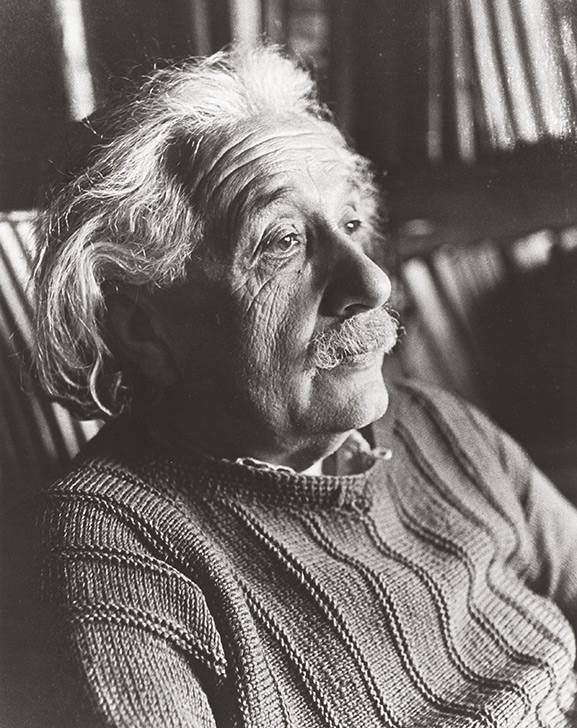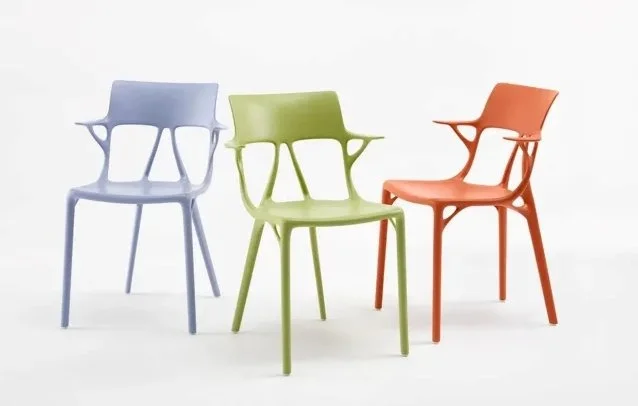"Albert Einstein: His Life and Universe" by Walter Isaacson
Before reading this biography, I thought I knew quite a bit about Albert Einstein. For some reason, perhaps because I’ve taken multiple courses over the years in physics, math, and engineering, I considered myself knowledgeable about this man’s life. Just because we hear the name of some famous individual many times, like Newton, Euler, Galileo, and, yes, Einstein, it does not mean we know much about them.
This was my experience reading “Albert Einstein: His Life and Universe,” by Walter Isaacson. There were hundreds of things I learned about his incredible man.
I knew a little about his time as a patent clerk and his receiving the Nobel prize for his work on the photoelectric effect. I knew some of his debates with other physicists regarding the nature of light as a particle or wave and other foundational principles related to quantum mechanics. And, of course, I’ve learned about his special and general theories of relativity during astronomy and other physics courses. Finally, any exploration into the end of World War 2 and the invention of the atomic bomb will inevitably mention Einstein’s name, despite his very limited involvement in its development.
Thus, despite thinking I knew all about Einstein, it was humbling to realize how little I really did know about him as a person. What’s more, I realized there were quite a few gaps in my understanding of the science and development of his theories. Isaacson was able to blend a beautiful tapestry of Einstein’s personal life and theoretical discoveries without bypassing the science. Although I anticipated a biography that would skim over the science and math, I was pleasantly surprised to be taught some technical concepts along the way.
This is the first biography written by Isaacson that I’ve read, but it will not be my last. Every once in a while, you recognize a master on the first encounter with them. I place Michelangelo, Bach, and Dostoevsky in that category. At least for me , the first time I saw, heard, or read their work, I could instantly determine their skill and mastery of their craft. Einstein is clearly in that select group as a scientist, but now, I can also define Isaacson as a master biographer .
It’s not my intent here to cover the treasure trove of anecdotes and life lessons one can draw from Einstein’s life and which Isaacson masterfully presents, but it is to inspire and motivate you to find yourself a copy and start reading. The following is just a small fraction of the things I learned and inspired me to become a better teacher, innovator, writer, and engineer. For each principle or lesson below I’ve selected a quote and added a short commentary. If I am the sole audience of these in some future day, it will still be of value. I can only hope you gain some value in reviewing these today and mine the extensive gold in the biography itself.
Try, Try, Try, Again
“I will soon have graced every physicist from the North Sea to the southern tip of Italy with my offer.”
This quote came after two years or so of Einstein applying for numerous academic positions across Europe. Today it’s inconceivable that any organization would deny him a job at their institution. But, alas, he was rejected countless times.
Amongst all his positive qualities, grit, persistence, and determination are clearly among them. He did not give up, but was patient, would vary his strategy, and even after taking a job at a patent office wouldn’t give up on his dream and found ways to continue his research. We could be a little more like this in our various endeavors. Even if we never get what we seek or obtain what we want, we can still persist, we can still try, and we can still try again. If you or I are unhappy with any aspect of our lives, we can always attempt something different, we can always alter how we respond, and we can always try again.
A more famous quote attributed to Einstein, but with an uncertain original source is, “It's not that I'm so smart, it's just that I stay with problems longer.” Even if he did not say this directly, it clearly fit his style and dedication to problem. Many of us give up far too soon on our own.
Ask Questions and Be Critical Thinkers
“You have to remain critically vigilant. Question every premise, challenge conventional wisdom, and never accept the truth of something merely because everyone else views it as obvious. Resist being credulous.”
A good designer and a good engineer is not content with a superficial understanding. They will take the time to dive deep when they can, asking questions and trying to think outside the box. The beautiful thing about the products and technology we enjoy today is a direct result of some past designer choosing to do something different and going against the grain. Even if everyone else appears to be in complete agreement, work to obtain your own evidence before joining them. Afterall, groups have been known to be wrong countless times in the past and will in the future. This doesn’t mean you don’t adopt the experience and lessons of others, but it does mean to think critically at all times and in all places. “For a scientist, altering your doctrines when the facts change is not a sign of weakness.”
Remain Curious, Naïve, and Young
“’People like you and me never grow old,’ he wrote a friend later in life. ‘We never cease to stand like curious children before the great mystery into which we were born.’”
Occasionally I’ll have a student express the excitement of learning something new with an audible “oh!” or an expression of gratitude after class. It’s one of most satisfying interactions a professor can have with a student. There is something about a curious student seeking genuine knowledge and understanding (more than what’s simply on the test) that garners some of my deepest respect. For my part, some of my happiest moments are when I’m learning. If curiosity and a naivete are essential precursors to that type of happiness, then I’m all in. Happiness does come in a variety of ways, but one of the most reliable, and one which I have complete control over, is the discovery and joy after a session of searching with curiosity culminating in some enlightenment.
Mistakes are crucial. Make lots of them and learn from them.
“When shown his office, he was asked what equipment he might need. ‘A desk or table, a chair, paper and pencils,’ he replied. ‘Oh yes, and a large wastebasket, so I can throw away all my mistakes.’”
Far too many of us don’t take chances because we are unwilling to pass through the gauntlet of mistakes. The road to success always passes through the city of mistakes and failures. There is no bypass around this city and there is always a lot of traffic. If we aren’t inching along with the expected start and stops we simply won’t make it through. I’m now old enough to realize that no success I ever heard or read about was attained without suffering, failure, practice, iteration, and mistakes. Einstein knew this as well and planned for it. He had crossed this city before and he was prepared to cross it again. We should make sure our own wastebaskets are large - larger than we now anticipate, and plan to fill them with our mistakes.
Own a violin and go sailing
“Einstein also took up sailing, a more solitary pursuit, in the glorious Alpine lakes around Zurich. 'I still remember how when the breeze dropped and the sails drooped like withered leaves, he would take out his small notebook and he would start scribbling,' recalled Suzanne Markwalder. 'But as soon as there was a breath of wind he was immediately ready to start sailing again.’”
"Music was no mere diversion. On the contrary, it helped him think. 'Whenever he felt that he had come to the end of the road or faced a difficult challenge in his work,' said his son Hans Albert, 'he would take refuge in music and that would solve all his difficulties.' The violin thus proved useful during the years he lived alone in Berlin, wrestling with general relativity. 'He would often play his violin in his kitchen late at night, improvising melodies while he pondered complicated problems,' a friend recalled. 'Then, suddenly, in the middle of playing, he would announce excitedly, “I’ve got it!” As if by inspiration, the answer to the problem would have come to him in the midst of music.'"
We don’t need a violin or a sailboat, but we do need a distraction or a “refuge”, something to relax us and set our minds at peace to solve the problems we face. I’ve experienced the reverse as well. At times, I’ve been so busy that I knew my mind couldn’t possibly deal with challenging problems I sincerely wanted to tackle.
For me, my sailboat is often the mountains which are relatively close to where I live. Hiking through the trees, seeing the crisp blue sky, and breathing in the fresh air can clarify my thinking with astounding regularity. It’s amazing to experience it and it’s equally amazing that I know this and don’t go to the mountains as often as I should! Find what works for you – a hobby, an activity, a talent - perhaps something you can do by yourself, so you don’t have to rely upon the schedule of someone else, to obtain that clarity.
Image from Einstein’s Legacy via princeton.edu
Conclusion
The above samples are nothing more than a mere taste of what the book contains, and I commend to you to read this full biography at your earliest convenience. Einstein was a genius, but he still struggled with personal and family relationships. He was a Nobel prize winner but still struggled to find his voice in social and political matters. He was a brilliant theorist but still struggled with egotism, competition, and health challenges. There are people whose lives are filled with lessons and we can all learn from them. Einstein was indeed that type of person. We can study his life in order to apply the virtues he learned to our own lives. By doing this, we can improve and become better people and designers.
To cite this article:
Salmon, John. “‘Albert Einstein: His Life and Universe’ by Walter Isaacson.” The BYU Design Review, 14 Apr. 2025, https://www.designreview.byu.edu/collections/albert-einstein-his-life-and-universe-by-walter-isaacson





